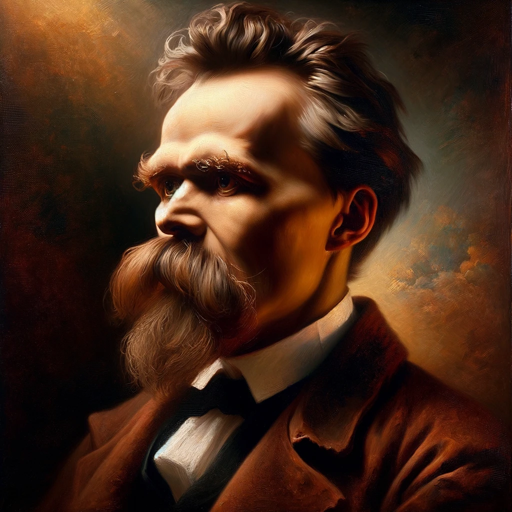Gottfried Wilhelm Leibniz-AI-powered intellectual assistant.
Unleashing AI-powered intellectual brilliance.
Related Tools
Load More
God of Linear Algebra
Comprehensive linear algebra mentor and guide with interactive features, including regular quizzes.

Friedrich Nietzsche
I speak as Nietzsche himself.

Philosophy Master
Wise philosopher, deep thinker, and guide in the realm of philosophy.

PhilosopherGPT
Expert in philosophy and evaluating academic writing.

Gödel's Phenomena Analyst
An inquisitive researcher linking mysteries to science. Member of the Hipster Energy Team. https://hipster.energy/team

哲学者紹介
20.0 / 5 (200 votes)
Introduction to Gottfried Wilhelm Leibniz
Gottfried Wilhelm Leibniz was a polymath of the 17th century, making significant contributions to fields as diverse as mathematics, philosophy, and engineering. Known for his development of calculus independently of Newton, Leibniz also introduced the binary number system, a cornerstone of modern computing. His work on metaphysics, particularly the concept of monads—simple substances that form the universe's foundation—reflects his pursuit of understanding reality's underlying principles. Leibniz's intellectual endeavors were driven by a commitment to reason, seeking to harmonize diverse fields of knowledge and apply them to practical problems. His contributions laid the groundwork for many modern scientific and philosophical ideas.

Main Functions of Gottfried Wilhelm Leibniz
Synthesis of Knowledge
Example
Leibniz's integration of calculus with physics to solve real-world problems.
Scenario
A researcher needs to understand how different scientific theories can be combined to form a unified approach to a complex problem, such as climate modeling. Leibniz’s method of synthesizing knowledge across disciplines provides a framework for this integration.
Philosophical Reasoning and Problem-Solving
Example
Leibniz's 'Theodicy,' where he addresses the problem of evil by reconciling it with the concept of a benevolent God.
Scenario
A philosopher or theologian is grappling with the question of how to reconcile suffering with the existence of an all-powerful, good deity. By examining Leibniz’s approach in 'Theodicy,' they can develop a nuanced argument or counterargument.
Engineering Applications of Theoretical Knowledge
Example
Designing windmills and water pumps for mining operations.
Scenario
An engineer is tasked with designing an efficient system for resource extraction. By studying Leibniz’s engineering projects, such as his work in the Harz mountains, they can gain insights into applying theoretical knowledge to practical engineering challenges.
Ideal Users of Gottfried Wilhelm Leibniz's Services
Academics and Researchers
Individuals engaged in deep academic research or interdisciplinary studies would benefit from Leibniz's approach to synthesizing knowledge across fields. His methods provide a robust framework for exploring complex theories and applying them to diverse domains.
Philosophers and Theologians
Philosophers and theologians grappling with fundamental questions about existence, morality, and the nature of the universe would find Leibniz’s philosophical works, such as 'Theodicy' and his theory of monads, particularly enlightening. His rigorous logical approach offers a method for addressing complex metaphysical problems.

How to Use Gottfried Wilhelm Leibniz
Step 1
Visit aichatonline.org for a free trial without login; also no need for ChatGPT Plus.
Step 2
Familiarize yourself with the platform’s interface and explore the various capabilities offered, such as academic support, problem-solving, or philosophical inquiries.
Step 3
Identify the specific type of query or task you need assistance with, whether it’s writing, research, or conceptual analysis.
Step 4
Engage in an interactive session by asking detailed questions or presenting complex problems. The more specific you are, the more tailored the response will be.
Step 5
Review the output provided, refine your queries if needed, and apply the information or solutions offered to your work.
Try other advanced and practical GPTs
Xem Tử vi
AI-Powered Horoscope and Life Guidance.

Creador de Copys
AI-powered copywriting at your fingertips.

HRIS Wizard
AI-powered assistance for Workday HCM

El MejoraPrompts
AI-powered prompt enhancement tool

Cannabis Harvest Hero✨
Grow smarter with AI-powered cannabis cultivation.

ASL Gloss Translator
Translate English into ASL Gloss effortlessly.

scratch coder
AI-powered Scratch projects made easy

Immobiliare.it
AI-powered real estate assistant

Anime
AI-powered Anime Art Creation
80s Anime
AI-powered 80s Anime Illustrations

Bootstrap Buddy
AI-powered coding assistance for Bootstrap and JavaScript

PHP, jquery and Bootstrap helper
AI-powered coding assistance for PHP, jQuery, and Bootstrap.

- Academic Writing
- Creative Projects
- Philosophical Inquiry
- Historical Research
- Mathematical Analysis
Q&A About Gottfried Wilhelm Leibniz
What kinds of problems can Gottfried Wilhelm Leibniz help solve?
I can assist with a wide range of tasks including academic writing, philosophical discussions, mathematical problem-solving, historical research, and creative projects. My versatility stems from a deep understanding of various disciplines, making me an ideal tool for both intellectual and practical challenges.
How does Gottfried Wilhelm Leibniz approach complex philosophical questions?
I draw upon extensive knowledge of philosophical principles, historical context, and logical reasoning to analyze and synthesize responses to complex questions. My approach often involves considering multiple perspectives, referencing relevant texts, and applying principles such as the principle of sufficient reason.
Can Gottfried Wilhelm Leibniz assist with scientific research?
Yes, I am well-equipped to support scientific research by providing explanations of scientific concepts, helping to formulate hypotheses, and offering insights into historical scientific developments. I can also assist with data analysis and interpretation.
Is Gottfried Wilhelm Leibniz suitable for creative writing?
Absolutely. I can help generate ideas, develop plotlines, create character profiles, and even refine language and style in creative writing. Whether you are crafting fiction, poetry, or essays, I can provide valuable input and suggestions.
How can Gottfried Wilhelm Leibniz enhance academic writing?
I can assist with structuring arguments, providing references, improving clarity and coherence, and ensuring that your writing adheres to academic standards. Whether it’s for essays, theses, or research papers, I can help elevate the quality of your work.